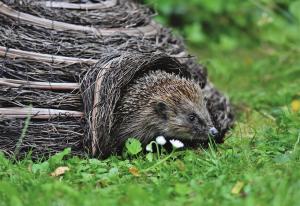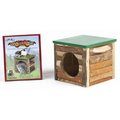Hedgehogs are delightful creatures that are beloved by many people. With their small size and adorable appearance, hedgehogs have captured the hearts of millions of animal lovers around the world. Hedgehogs are primarily found in Europe, Asia, and Africa, but have also been introduced in other parts of the world, including North America.
Hedgehogs are nocturnal animals, which means that they are most active at night. During the day, hedgehogs typically sleep in dense vegetation or under piles of leaves. In the summer, hedgehogs can often be seen roaming around gardens and parks in search of food and water. However, despite their cuteness, hedgehogs are facing several challenges in the wild, including habitat loss, pollution, and climate change. In this blog post, we will discuss hedgehogs in summer and what you can do to help protect them.
The Life of a Hedgehog in Summer
Hedgehogs are known to hibernate during the winter months when food is scarce. They typically emerge from hibernation in March or April, when the weather starts to warm up. During the spring and summer months, hedgehogs are busy breeding and foraging for food. Hedgehogs primarily feed on insects, slugs, worms, and other small invertebrates. They are also known to eat fruits and vegetables, including apples and carrots.
In the summer, it is important to ensure that there are no holes or gaps in your fencing that a hedgehog could get through.
Challenges facing hedgehogs in Summer
Despite their cute and cuddly appearance, hedgehogs are facing several challenges in the wild. One of the main challenges facing hedgehogs is habitat loss. Hedgehogs require dense vegetation, such as hedgerows and shrubs, to sleep and breed. However, with the increase in urbanization and development, many of these habitats are being destroyed or fragmented.
Another challenge facing hedgehogs is pollution. Hedgehogs are known to scavenge for food, and they often eat insects and other small invertebrates that may have been exposed to pesticides and other chemicals. Pollution can also affect the quality of water, which can be a problem for hedgehogs that rely on water sources for drinking and bathing.
Finally, climate change is also affecting hedgehogs in the wild. Changes in temperature and rainfall patterns can affect the availability of food and water for hedgehogs. For example, droughts can reduce the availability of water, while floods can destroy hedgehogs' nests and food sources.
How you can help hedgehogs in summer
There are several things that you can do to help protect hedgehogs in the summer. Here are some tips:
Provide food and water: Hedgehogs need access to food and water to survive. You can put out a small dish of water and leave some food, such as cat or dog food, for hedgehogs to eat. Avoid giving them milk, as hedgehogs are lactose intolerant.
Create a hedgehog-friendly garden: Creating a hedgehog-friendly garden is an excellent way to help hedgehogs in the summer by creating paths through gardens, if you have your neighbours agreement. Or you can provide some small exits from your garden via holes in the fence to stop hedgehogs getting trapped.
You can make your garden more hedgehog-friendly by:
Planting native plants: Hedgehogs rely on vegetation for shelter and food, so planting native plants can provide them with a suitable habitat. Plants like hawthorn, blackthorn, and honeysuckle are all excellent choices.
Providing shelter: Hedgehogs need shelter to sleep and breed. You can provide shelter by creating a hedgehog house or by leaving piles of leaves and twigs in a quiet corner of your garden.
Avoiding pesticides: Pesticides and other chemicals can be harmful to hedgehogs. Avoid using pesticides in your garden and consider using natural pest control methods instead.
Keeping ponds safe: Hedgehogs can drown in garden ponds, so it's essential to make sure your pond has a shallow sloping edge or a ramp for hedgehogs to climb out if they fall in.
Support hedgehog charities
Supporting hedgehog charities can help raise awareness about the challenges facing hedgehogs and fund conservation efforts. You can donate to hedgehog charities or volunteer your time to help with hedgehog conservation projects.
In conclusion, hedgehogs are charming animals that play an essential role in the ecosystem. However, they are facing several challenges in the wild, including habitat loss, pollution, and climate change. By taking simple steps like providing food and water, creating a hedgehog-friendly garden, reducing your impact on the environment, and supporting hedgehog charities, you can help protect hedgehogs and ensure their survival for generations to come.
Written by: Lee








